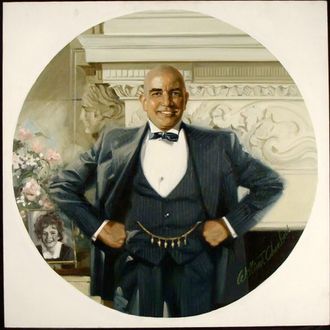
Dylan Matthews has an intriguing story about young financiers who are making a consequentialist argument for getting rich. These do-gooders argue that by making millions of dollars on Wall Street, then giving that money away to charity, they’re doing more good than simply working for world betterment directly.
This is a time-tested argument — one Wall Street guys love to make, since it lends a patina of moral superiority to their pursuit of wealth — and it seems obvious at face value. A person making $50 million a year can do much more to help a good cause than a person making $50,000 a year, right? And aren’t Bill Gates’s billions saving untold numbers of lives?
Both of these things may be true. There’s a problem, though, with the get-rich-to-do-good theory of wealth accumulation. Namely, effective givers are the exception, not the rule.
To see why, let’s look at the hypothetical example given to Matthews by Toby Ord, who leads a group called Giving What We Can:
Hedge fund manager John Paulson made $5 billion in 2010. Suppose Paulson were to keep his job, move to a studio in Hoboken, reduce his living expenses to $30,000 a year, and give the rest of the $5 billion away. He could save 3,000 times as many lives in a year as Ord could save in 80 years. So why not enter finance with the express goal of using earnings to save lives?
Now let’s look at how the actual, non-hypothetical John Paulson has spent his billions. He pledged $15 million to build a children’s hospital in Ecuador and gave $15 million to an organization called the Center for Responsible Lending. But his biggest public charitable contributions have been given to organizations that have less immediate social impact. He gave $20 million to NYU’s business school and $100 million to the Central Park Conservancy. Giving that kind of money to Central Park may ensure that it stays well groomed, but it probably won’t save many lives. And there’s no guarantee that even if non-hypothetical Paulson did move into a Hoboken studio and give away all his money, he would give it to truly needy organizations.
This isn’t to pick on Paulson. Most ultra-wealthy people are drawn to causes that are close to their hearts, and those causes vary in their degree of immediate social impact. Ron Perelman and Henry Kravis have each given $100 million to Columbia Business School, Leon Black donated $48 million to build an arts center at Dartmouth, Pete Peterson has pledged $500 million to the cause of debt reduction, and Steve Schwarzman — he of the $100 million New York Public Library donation — recently pledged another $100 million to start a scholarship program in China, with dorms modeled after the Harvard Business School.
These donations aren’t evil. Not even close to it. But is giving to a business school the moral equivalent of curing cancer? Is putting your name on the New York Public Library a better use of extreme wealth than ending global hunger?
The problem with the consequentialist argument for wealth-generation is that as people get rich, their priorities change. They give to charity for all kinds of self-motivated reasons — to cement their legacies, to support the pet causes of clients and colleagues, to get their kids into college or get a quick PR boost — rather than look for where their money will have the maximum impact. Even when their focus remains squarely on impact, their scope often broadens. They go from thinking, I want to change the world directly, to thinking, I want to fund organizations that will change the world, to eventually thinking, I want to fund the college educations of people who will create organizations that will then change the world. And eventually, you have a bunch of very well-funded Ivy League business schools, research centers, and scholarship programs, and not enough money going directly to the organizations that are actually saving people’s lives, today.
This phenomenon isn’t limited to Wall Street. As George Packer pointed out in his New Yorker story about the sociopolitics of Silicon Valley, the world-improvement projects adopted by rich tech founders often end up solving local problems as opposed to global ones. And the temptation among rich people — regardless of how they make their money — will always be to reward causes they believe in, regardless of the relationship between those causes and the absolute humanitarian gains they enable.
Matthews himself seems to understand the limits of charitable giving in practice. He noted, in another recent post, that only a third of charitable giving actually reaches the poor — much more goes to religious organizations and educational institutions. And several people interviewed for his story today are trying to correct this by teaching rich people how to spend their money in better ways.
I’m all for improving the effectiveness of charity giving among the existing rich, and I support the idea of GiveWell and other organizations that are trying to do just that. But encouraging young people to get as rich as possible on Wall Street (a goal that itself can involve doing morally dubious things) because it will enable them to puff up their favorite charities seems misplaced. Sure, a generation of financiers could give the vast majority of their money away, saving millions of lives, and make the world a better place. But in practice, that money is much more likely to be apportioned to a mixture of useful and not-so-useful causes. The small minority of Wall Streeters doing genuine good with their money can’t be allowed to give moral cover to the entire practice of extreme wealth accumulation.





























